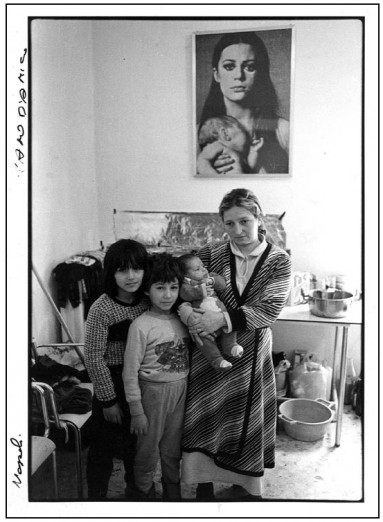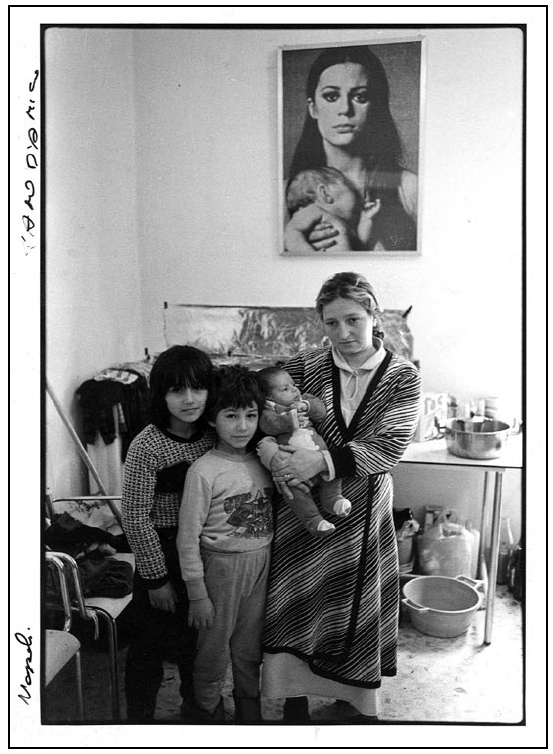[the following is a translation of the first section of Leopoldina Fortunati's remarkable essay "La famiglia: verso la riconstruzione" [The family: towards reconstruction] included in the volume Brutto ciao: direzioni di marcia delle donne negli ultimi 30 anni, alongside Mariarosa Dalla Costa's "Riproduzione e emigrazione." The book is from 1976.]
 An occupied school in Naples, 1980. Photo by Tano D'Amico.
An occupied school in Naples, 1980. Photo by Tano D'Amico.
"1. Family and factory: towards what reconstruction?"
“The clandestine period, the one of sabotage… is finished. I believe it necessary to recall the courageous labor of everyone. From the director all the way down to the last of us; as such, everyone needs to work and to comply with the instructions of our bosses, who are each responsible for their own part in production. Naturally they won’t direct as despots would but will give their necessary activity, maintaining discipline with equity and good sense… We trust in the work of those in charge here… Remember that that bosses are necessary. Everyone has a house, has a family, and if the paternal authority that sometimes manifests itself in a merited spanking was to lessen, the family would go to ruin.”
This was written, in its “disciplinary” voice, for a mimeographed document, circulated in amongst Fiat workers, that reported on the May 2, 1945 Sima meeting of CLN communists. The mimeograph in question, addressed to the Fiat workers, expressed in an incisive mode the political line that the PCI direction was to articulate and impose in the postwar period, first of all within the party itself, going so far as the hunt for “reds,” to put it in Montaldi’s words, and then out to the movement as a whole. The buzzword of reconstruction on the part of party and union alike was already being translated in the factory into the heartfelt call to workers for the relaunching of productivity and the reestablishment of discipline and obedience to command. To make such a call more credible and complete, they didn’t hesitate to call to the cause that other factory, the family, where to those same workers remained open the career of bosses, of controllers of the houseworkers’ labor.
The “assumed” paragon of hierarchy in the factory with that of the family, and the “obvious” evidence that, as in the family, so too in the factory, that if there wasn’t a precise order, more or less paternalistic, more or less authoritarian, that everything would go to ruin: this truly pointed to the fundamental contradictions of the working class. “Remember that bosses are necessary,” but remember also that we workers, even though we’re ordered around in the factory, in the home it’s still us who give the orders.
And they pointed there, inviting workers to consolidate the stratification of power inside the class, that is, the power of salaried over non-salaried, their compromise of power with capital in the mediation of control over the weakest strata of their very class.
But to speak in these terms of the working family in ‘45 was to invoke an oleographic image,
Or better to say, what survived did so undermined by a disease that would reveal itself to be incurable: the ever more widespread and pressing war of women against what the capitalist family represented at that time in terms of unpaid work, personal dependence on a man, family discipline, oppression and isolation.
